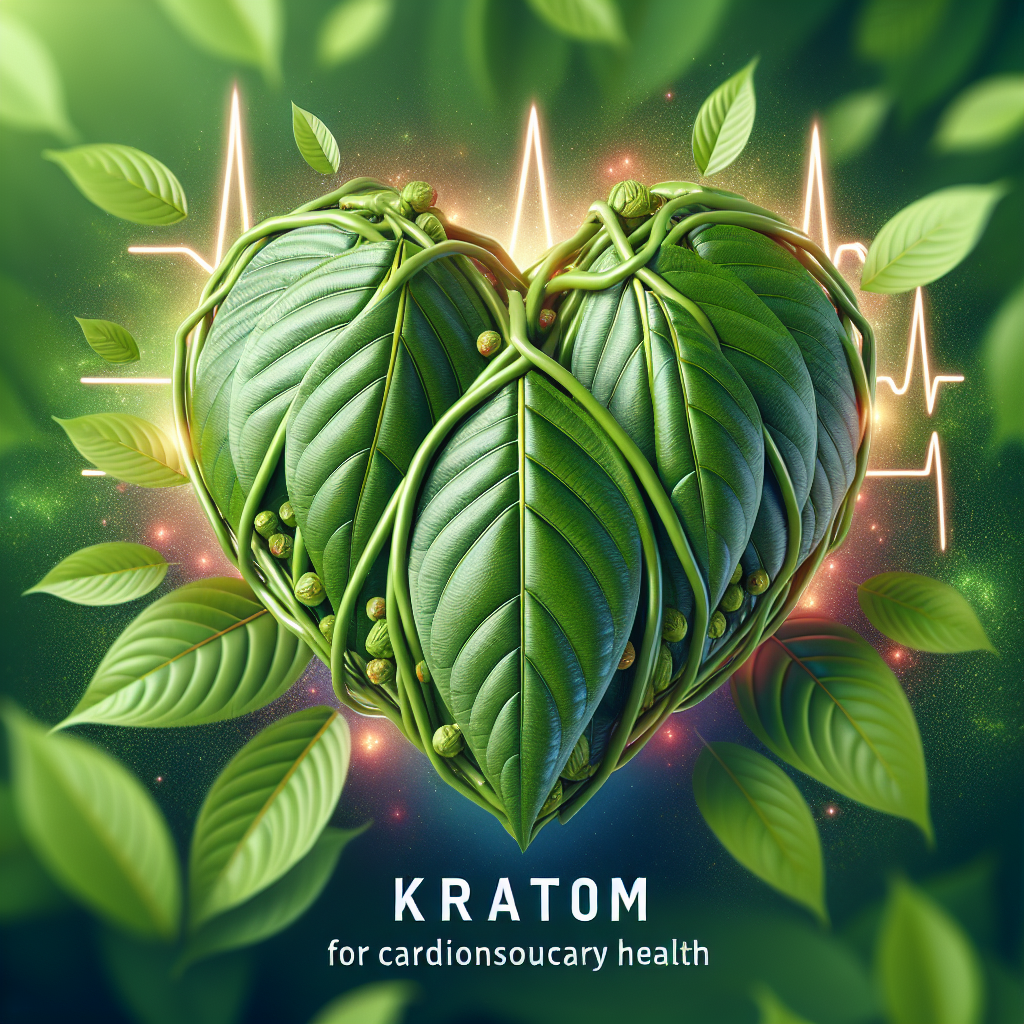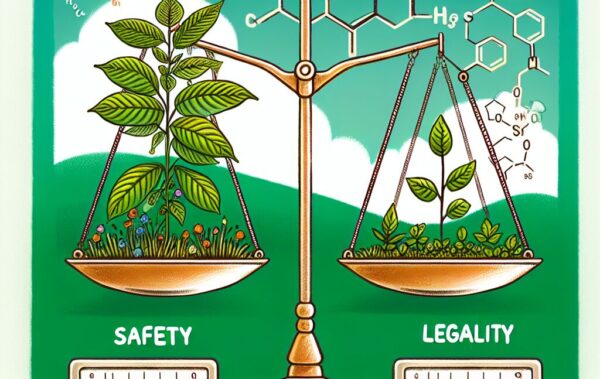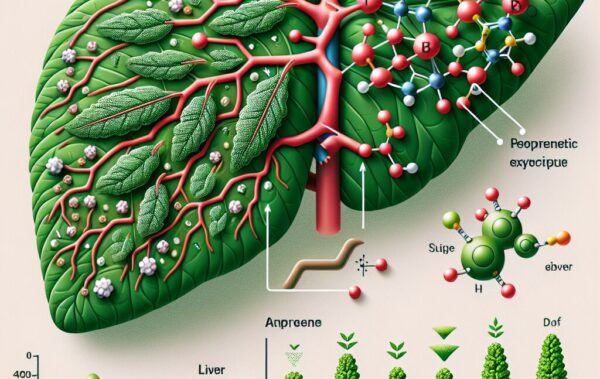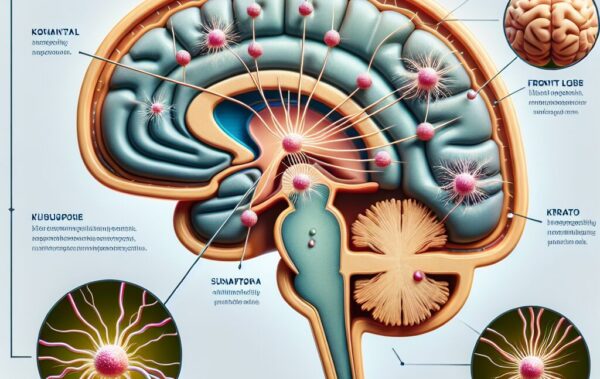- Understanding Kratom and its active compounds
- Kratom’s impact on cardiovascular function
- Potential heart health benefits of Kratom use
- Risks and considerations for cardiovascular patients
- FAQ: Kratom and cardiovascular health
Kratom, a tropical tree indigenous to Southeast Asia, has been part of traditional herbal medicine for centuries. The leaves of this evergreen plant, scientifically known as Mitragyna speciosa, contain a variety of phytochemicals. Among these, the most notable are the alkaloids mitragynine and 7-hydroxymitragynine. These compounds are largely responsible for Kratom’s physiological effects and have captured the interest of the scientific community for their potential health benefits.
What makes Kratom especially fascinating is the complexity of its pharmacodynamics. Depending on the dosage and strain, it may act as a stimulant or a sedative. This dichotomy is due to the presence of various alkaloids that interact synergistically, creating a broad spectrum of biological activities. When used in lower doses, mitragynine primarily engages with adrenergic receptors, which can lead to stimulating effects, whereas larger doses result in more pronounced interaction with opioid receptors, providing sedative effects.
Kratom’s interplay with the body’s opioid receptors without being an opioid has generated interest in its potential for pain management without the high risk of dependence associated with traditional opioids. Hence, many users turn to Kratom as an alternative for pain relief and other therapeutic uses, including potential cardiovascular support.
For those curious about experiencing the natural properties of Kratom, there are various forms to explore, from powders to capsules. Access to pure and high-quality Kratom is vital, and enthusiasts often prefer products like Kratom powder and Kratom capsules for easy dosage and consumption.
The rich alkaloid profile of Kratom not only yields diverse effects but also indicates the potential of this herbal medicine for various therapeutic applications, including the maintenance of heart health. As research continues to unveil the myriad of ways these active compounds interact with bodily systems, the full scope of Kratom’s potential can be better understood and harnessed for cardiovascular support and overall well-being.
Kratom’s impact on cardiovascular function
Advancing our understanding, the impact of Kratom on cardiovascular function is of significant interest. Known for its diverse pharmacological profile, the influence of Kratom on the heart and circulatory system is complex and entails both direct and indirect effects.
At the heart of the conversation is the interplay between Kratom’s alkaloids and the autonomic nervous system, which regulates heart rate and blood pressure. By engaging with adrenergic receptors, these compounds can potentially influence cardiovascular dynamics. For instance, in lower doses, the stimulatory effects of mitragynine may manifest as an increase in heart rate and elevated blood pressure, which mirrors the body’s response to certain forms of physical and mental stress.
Conversely, larger doses may induce a more sedative state, with effects that can actually dampen the stress response, theoretically leading to a lowering of blood pressure and a reduction in the heart’s workload. This dualistic nature poses intriguing possibilities for Kratom’s role in managing different cardiovascular conditions and promoting heart health. However, it’s imperative to note that these effects are dose-dependent and can vary widely among individuals, based on a variety of factors including genetics, tolerance, and the presence of other health conditions.
Another aspect to consider within Kratom’s impact on cardiovascular health is its potential anti-inflammatory and antioxidant properties. Chronic inflammation is a well-known risk factor for atherosclerosis and other cardiovascular diseases. Therefore, the purported anti-inflammatory effects of Kratom’s alkaloids could theoretically provide cardiovascular support by mitigating inflammation and protecting vascular cells from oxidative stress.
Further adding to the potential cardiovascular benefits is the purported ability of Kratom to alleviate anxiety and stress, factors which can exacerbate heart conditions. By acting on opioid receptors, Kratom may induce a calming effect, potentially reducing stress-induced cardiac strain.
However, the complexities of Kratom’s pharmacological effects necessitate cautious optimism. As with any herbal medicine claiming benefits for heart health, rigorous scientific investigation is necessary to substantiate these claims and understand the full spectrum of Kratom’s influence on cardiovascular function. It is vital to remember that self-medicating with Kratom for heart conditions without professional advice is not advisable due to the potential risks involved.
For those looking to delve into the world of Kratom and explore its various forms, it is essential to seek out high-quality products. Whether you’re interested in the traditional preparation of Kratom powder or the convenience of Kratom capsules, it is available through reputable sources to ensure purity and potency.
In conclusion, Kratom’s potential for cardiovascular support is both intriguing and complex. While there is anecdotal evidence and some early scientific studies indicating possible benefits, the relationship between Kratom and heart health remains largely under-explored. Consumers need to approach its use with careful judgment and consider consulting with healthcare professionals when contemplating Kratom for cardiovascular or any other therapeutic purposes.
Potential heart health benefits of Kratom use
Exploring the herbal landscape, Kratom emerges as a plant with potential implications for heart health. In various regions where Kratom is indigenous, people have incorporated these leaves for their supposed health-promoting benefits. With cardiovascular diseases being a leading cause of mortality worldwide, there is a growing interest in natural supplements that can contribute to heart health and provide cardiovascular support.
Among the potential heart health benefits of Kratom use, it’s the plant’s reported ability to manage blood pressure that stands out. Blood pressure regulation is crucial in maintaining heart health and reducing the risk of heart disease. Hypertension, or high blood pressure, is a significant risk factor for developing conditions such as heart attack and stroke. Conversely, hypotension, or blood pressure that is too low, can also have severe health consequences. Some Kratom users report moderate consumption of certain strains having a stabilizing effect on blood pressure, which, if validated by scientific research, could be of immense interest.
Additionally, the potential anti-inflammatory properties of Kratom’s active alkaloids could play a role in cardiovascular protection. Chronic inflammation is closely associated with the development of atherosclerosis, where arteries become clogged and narrowed by fatty deposits. If Kratom’s compounds have anti-inflammatory effects, this could potentially slow or prevent the progression of atherosclerosis, thereby supporting arterial health.
Stress management is another area where Kratom may offer benefits. High levels of stress can strain the heart and are implicated in a variety of cardiovascular diseases. If used responsibly, the calming effects of Kratom might provide a natural way to alleviate stress, reduce the risk of stress-related heart problems, and improve overall heart health. Indeed, many users seek Kratom for its purported ability to promote relaxation and well-being.
Moreover, as an herbal medicine, Kratom could potentially complement conventional treatments for heart health. However, it’s essential to discuss any herbal supplementation with a healthcare provider to ensure it fits within an individual’s overall heart health strategy and doesn’t interfere with prescribed medications.
Regarding the consumption of Kratom for cardiovascular support, the form in which it is taken may also be of consequence. Those interested in exploring Kratom have a variety of options, from powders that can be brewed into teas to more direct methods like pre-measured capsules. Each form has its unique advantages in terms of ease of use, convenience, and the speed at which effects may be felt.
It should be emphasized that while Kratom’s potential benefits for heart health are indeed promising, they are not yet fully supported by extensive clinical research. The existing empirical evidence, primarily based on user testimonials and preliminary studies, necessitates further investigation. Until more conclusive data is available, individuals interested in Kratom should approach it with a healthy degree of skepticism and balance optimism with a grounded perspective on its potential effects.
Nevertheless, the conversation surrounding Kratom and heart health remains a fascinating and evolving field. As fresh insights into its pharmacological properties are unearthed, we may eventually behold a clearer picture of how this traditional herbal medicine fits into modern cardiovascular health maintenance.
Risks and considerations for cardiovascular patients
 While Kratom has been suggested to offer potential benefits for heart health, it’s crucial for cardiovascular patients to be aware of the risks and considerations before incorporating this herbal medicine into their wellness routine. As with any supplement, especially those that affect the cardiovascular system, there are several factors to take into account.
While Kratom has been suggested to offer potential benefits for heart health, it’s crucial for cardiovascular patients to be aware of the risks and considerations before incorporating this herbal medicine into their wellness routine. As with any supplement, especially those that affect the cardiovascular system, there are several factors to take into account.
The risk of potential interactions with prescribed heart medications is a primary concern. Kratom, through its various alkaloids, may interfere with the pharmacokinetics and pharmacodynamics of certain drugs. For patients taking blood pressure medications, antiarrhythmics, or blood thinners, Kratom could theoretically alter the effectiveness of these treatments or lead to adverse side effects. This underscores the importance of consulting with a healthcare practitioner before integrating Kratom into any regimen for cardiovascular support.
Additionally, the potential for Kratom to affect heart rate and blood pressure may vary among individuals. While some may experience a stabilizing effect, others could find their cardiovascular function adversely influenced, particularly with higher doses or prolonged use. An erratic heart rate or abnormal blood pressure can be highly detrimental to an individual with existing heart conditions.
The quality and purity of Kratom products also pose a significant consideration. Due to the lack of standardization in the production and sale of Kratom, products on the market can vary greatly in their alkaloid content and concentration. Adulterants and contaminants may also be a concern, and consuming impure products could lead to unpredicted cardiovascular effects. As such, sourcing Kratom from reputable providers, such as those offering certified Kratom capsules or laboratory-tested Kratom powder, is imperative for patient safety.
Importantly, the lack of comprehensive regulatory oversight can mean that recommendations for dosage and use are not always reliable, putting users with heart conditions at increased risk. Knowing the appropriate dosage—whether using Kratom powder, capsules, or other forms—is another consideration that should be made with professional guidance.
While anecdotal reports have suggested Kratom may contribute positively to cardiovascular support, individuals with heart conditions should be cautious. The potential side effects, such as palpitations, increased blood pressure, or interactions with heart medications, underscore the need for careful consideration and professional medical advice.
In conclusion, while Kratom may offer intriguing possibilities for contributing to heart health and cardiovascular support, it is not without its risks, especially for individuals with existing cardiovascular conditions. Ensuring informed decision-making and the prioritization of safety is essential when considering the inclusion of any herbal medicine in a heart health regimen.
FAQ: Kratom and cardiovascular health
To better understand how Kratom may interact with cardiovascular health, we’ve compiled a list of frequently asked questions that delve into the common inquiries and concerns surrounding this topic. Our goal is to provide you with reliable information to make informed decisions when considering Kratom as a complementary option for heart health maintenance.
FAQ: Kratom and Cardiovascular Health
Remember that the use of Kratom, or any herbal medicine, should be approached with caution, especially relating to heart health and cardiovascular support. Always consult with your healthcare provider to ensure that any addition to your regimen is safe and appropriate for your specific health needs.









